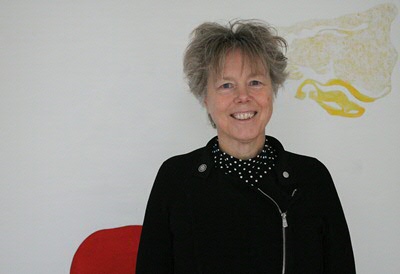About
The Groningen Centre for Digital Humanities promotes a multi- and interdisciplinary approach to foster innovative research and to fuse the strengths of humanities research with those of computer and information science. The Centre is unique in the way it is able to connect scholars from the Faculty of Philosophy, the Faculty Religion, Culture and Society and the Faculty of Arts. It supports scholars from these faculties in training Digital Humanities skills, and in collaborating, designing, funding and thinking about DH research projects.
Susan Aasman, Director of the CDH

The the Centre for Digital Humanities is led by Prof. Dr Susan Aasman. In her capacity as director, Aasman has organized events such as the annual Digital Humanities Days and numerous workshops to establish an engaging interdisciplinary research environment. A number of small-scale Digital Humanities projects that were funded by the CIT and the CDH/Faculty of Arts resulted in bigger grants from NWO, and ERC. Moreover, the Centre contributed to and strengthened ties with important infrastructural projects such as CLARIAH, DARIAH, ODISSEI , and the KNAW e-Humanities.
New developments
The Centre is ideally positioned for the current and future developments in the field of artificial intelligence, digital technologies and large scale data-based research infrastructures. In order to continue its pioneering role, the CDH is actively expanding its scope and seeks close collaboration on various levels, such as in the UG’s initiative to establish schools that are related to specific focal areas, such as “Digital Innovation & Technological Progress for a Knowledge Society” and “Governance & Politics for a Sustainable Society”.
In addition, the Centre continues to invest in actively participating in national initiatives such as the AI coalition, de Nederlandse Wetenschapsagenda and The Digital Society research program. As the first five years of existence has already shown, building strong interdisciplinary connections will enhance major opportunities for developing innovative research projects and acquire external funding.
Teaching
Since 2015, there is a successful Master track Digital Humanities with a strong focus on a combination of computational skills and critical theoretical reflections. This design has become a unique selling point, which was acknowledged by the NVAO who accredited the track recently. There is a steady influx of a diverse and international group of ambitious students. In addition, a faculty minor DH programme is up and running. The focus on acquiring digital competencies and transferable skills allows our graduates to have a head start at the job market.
Digital Turn
As the developments in the field of Digital Humanities and computational and data driven research are moving fast, it is crucial for media scholars, historians, archeologists, art historians, literary scholars, linguists or political scientists to learn to engage with both digitized and born-digital data. The Centre for Digital Humanities aims to take the lead in the agenda of making a digital turn within the Humanities. It will open up new pathways to address various important societal issues that are currently at stake.
| Last modified: | 17 July 2023 3.23 p.m. |
